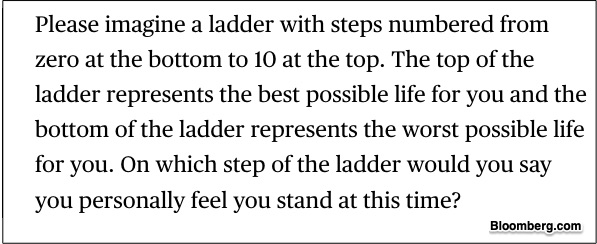
Why Immigration Economics Can Take Us To Milk and Sugar
March 20, 2025
March 2025 Friday’s e-links: A Trade Podcast
March 21, 2025Happily, the 2025 World Happiness Report starts by telling us that most of us underestimate the likelihood that a lost wallet will be returned. Then, we find out that while its ranking criteria remain the same as always, this year’s Report chose caring and sharing for its focus. Consequently, chapter titles relate to sharing meals, living and connecting with others, trust, and giving.
But before we return to my concern with happiness criteria, let’s look at the Report.
The World’s Happiest Countries
Again, Finland, Denmark, and Iceland top the 2025 World Happiness Report rankings:
 According to Axios, younger people in North America are less happy than an older cohort. In the U.S., they perceive more corruption, have less faith in government, and feel, “less supported by friends and family, less free to make life choices, more stressed and less satisfied with their living conditions.” Meanwhile, social trust, sharing meals, and household size were variables that elevated other countries’ scores.
According to Axios, younger people in North America are less happy than an older cohort. In the U.S., they perceive more corruption, have less faith in government, and feel, “less supported by friends and family, less free to make life choices, more stressed and less satisfied with their living conditions.” Meanwhile, social trust, sharing meals, and household size were variables that elevated other countries’ scores.
At #24 (6.724), the U.S. continued its downward slide. Based on the numbers, the U.S. should be a slightly lighter green:

However, the U.S. was not alone. Others dipped also:

Next, I wondered how a country’s affluence connected to its happiness. Showing five of the happiest countries at the top of the per capita GDP scale, The Economist had some answers:

Our Bottom Line: Scoring Happiness
My concern with the World Happiness Report relates to the market system and the life cycle.
As Gallup explains, it uses a Cantrell Ladder. Basing your answer on the Cantrell Life ladder, you consider the difference between what you have and what you could have. If your aspirations (and imagination) are limited, then the gap is small and your score goes up. Consequently, you could be more content with your lot because there is little more you can climb to. The variables they’ve selected ignore competition, ambition, inventiveness, hard work. Emphasizing balance, complacency, and contentment, they sidestep the competition, the ambition, and the invention that elevated our living standards during the past two centuries. Although the market system minimized extreme poverty, it also created the inequality that I suspect (I have no data) feeds unhappiness.
To survey participants, Gallup has explained it this way:

As a result, rather than world happiness, we are really measuring world contentment. The reason is the Cantrell Life Ladder.
Should the report have another name? And maybe we should only be comparing a country to itself?
My sources and more: With the 2025 World Happiness Report my springboard, then I checked for further analysis at Axios. and The Economist. But, this Atlantic article had the really superb consideration of happiness.
Please note that several of today’s sentences were in a previous econlife post.
![econlifelogotrademarkedwebsitelogo[1]](/wp-content/uploads/2024/05/econlifelogotrademarkedwebsitelogo1.png#100878)




